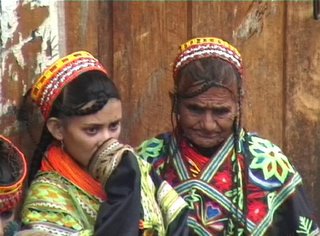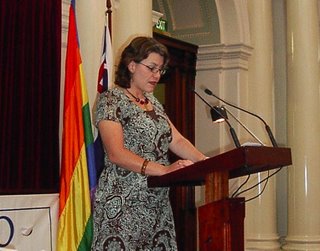GREUROVISION
 "I can’t believe I still need you/ I can’t believe I still want you/ I can’t believe life means/ Nothing without you/ Baby I'm still in love with…/ Everything I hate/ Everything you do/ Everything I fear/ Everything on you." These lyrics, chanted by the divine (by virtue of her plastic enhancements) Anna Vissi best outline the strangely ambivalent attitude our people have towards the Eurovision Song Contest, creating an internal conflict that simmers and then on occasions erupts with a fury far outmatching that of the Titans imprisoned beneath Vesuvius.
"I can’t believe I still need you/ I can’t believe I still want you/ I can’t believe life means/ Nothing without you/ Baby I'm still in love with…/ Everything I hate/ Everything you do/ Everything I fear/ Everything on you." These lyrics, chanted by the divine (by virtue of her plastic enhancements) Anna Vissi best outline the strangely ambivalent attitude our people have towards the Eurovision Song Contest, creating an internal conflict that simmers and then on occasions erupts with a fury far outmatching that of the Titans imprisoned beneath Vesuvius.As with everything else of course, we invented Europe and immediately proceeded to defile her. Zeus' rape of Europa becomes even more distasteful when one considers not only the act of violence but the fact that the name Europa itself, meaning "wide-eyes" denotes a cow-like quality to Europe. When one adds to this the Latin tautology of "vision", we immediately discern that the term Eurovision refers to "Wide-eyed sight," and it is left to the etymologist to speculate whether this bovine sight is attributable to the domesticated ungulates glued to the television set, or rather, the silly cows strutting their inconsiderable talents, compelling us to liken the whole event to the pungent smell of the digestive refuse emanating from the male of the species.
Over the years, Greece has actively participated in the Eurovision song contest, though never taking it quite seriously. Our contestants seldom did well and as a result, we dismissed the whole competition as frivolous and yet another manifestation of the homogenizing effects of globalisation upon vibrant cultures. People in the Greek music industry with pretensions to culture, such as the august Panos Metaxopoulos still maintain that the necessary pandering to the jaded and thoroughly degraded aesthetics of a European population ravaged by the depravations of modern western culture in direct parallel with the heinous crime committed by the father of the Olympians upon hapless Europa, result in songs of questionable quality, though no one can quite put their finger on why this is so.
Nonetheless, Eurovision, especially in countries where strait-laced Anglo-Saxon cultural values predominate is seen as a Bacchanalian orgy of bad taste, if anything, a necessary but carefully supervised blood-letting of frivolity and misplaced idealism that must be purged before the inevitable return to the whetting of the grindstone of filthy lucre. Coupled with the acid commentary of Terry Wogan, Eurovision serves to reinforce the level of cultural correctness that is permissible in our culture and provide a telling paradigm as to why we must reject the aurochian lowings accompanying the worship of our ancestors' Braze Bull for the brash and flash monolithic croonings of our Pacific mentors, who will not allow the worship of any other.
If a festival of bad taste was what was hoped for out of Eurovision 2006, then the audience was sorely disappointed. Athens 2006 was well, normal and to the horror of all devoted Eurovision fans, it was actually taken quite seriously. One speculates that this is so because the primary aim of Greek foreign policy, at least since the beginning of this decade has been to have the Greek entry placed in the top three of finalists in all Eurovision song contests. So far, Elena Paparizou (and her now forgotten sidekick, you know, the chunky guy who played the bouzouki) and Sakis Rouvas have fulfilled their national duty. In the face of the immortal Anna Vissi however, we witness the collapse of the present administration's policy, exposing its ineptitude in selecting this muse of Music personified, for Anna is far above any such earthly considerations. A mere glimpse of her visage is enough to underline how high she actually is.
We tried too hard and as a result, we put everyone to sleep. An Olympics 2004 style dramatization of the development of "4,000 years of Greek music" was so perfectly executed that not even Terry Wogan could make a sarcastic comment about it. And indeed, staging such an intellectual display in the concert of distaste is tantamount to performing a religious ceremony in a pagan temple. This is the first telling clue that something is not quite right with the world.
The second clue is the thoroughly mainstream presenting by the erstwhile colourful Sakis Rouvas and the immensely bland, devoid of personality or relevance Maria Menounos. Rather than exchange in tasteless banter, contrived jokes with punch lines that can be seen from Mt Ida in Crete and uncontrived frivolity, they just got on with the job and presented the program. None of the scintillating repartee of Masha and Pasha at Kiev 2005, so raw that it made entire audiences cringe. Here the seemingly banal triumph of mundaness was punctuated only by Greek government spokesman Theodoris Roussopoulos' refusal to award the first prize to the Eurovision 2006 winners, the barbaric Finn contestants.
In the apocalyptic literature of Tolkien, especially in the Lord of the Rings and the Silmarrilion, an undercurrent theme is the perversion of all creation. The Enemy seeks to parody the works of the Creator by twisting them to its own design. The Enemy seeks to enslave as many as possible by binding them to its iron will and does so first by entrancing its minions, making them see its works as fair and reasonable, convincing them subliminally of its worth. This Enemy can be likened to the Antichrist, in that it is the embodiment of evil and utterly opposed to the truth, while convincingly disguised as wholly good and a bringer of the truth.
Subliminal messages of this kind are apparent throughout the history of the competition. On April 25, 1974, the Portuguese entry "E depois do adeus" was used as the signal for the tanks of the left-wing military coup that overthrew the fascist government to move in. They also abounded in this years' Eurovision. Now that we are lulled into a false sense of security by the relative absence of tackiness, its respectability as compared to previous years is a clear indication of its subversive and thoroughly evil messages moving into the mainstream. And consider the lyrics of the Lithuanian entry delivered in an insinuating, childlike tone:" We are the winners of Eurovision/ We are, we are!/ So, you gotta vote, Vote, vote for the winners… 'cos we are here to represent the truth." Who are the winners? Obviously the Enemy, which refers to itself in Royal plural. It command us to worship it, stating that it represents truth. Not convinced? Look at the title of the Israeli song, "Together we are One" It is drawing us to it. Too far-fetched you say? Look how the Enemy has possessed hapless Turkish contestant Sibel Tüzün to sing its praises: "I am no ordinary person/ I ain’t no imitation, but a real diamond/My brilliance will bedazzle you, watch out/ Are you ready for love… I’m your superstar." All the hallmarks and signs of the times are there. It loudly promotes its superiority and protests its goodness, it warns of its impending coming and tries to hide the fact that it is but a poor and fallen imitation of the Truth.
If by now you feel that the interminable debate between creationists and evolutionists in the letters page of this publication has caused a gasket to blow in his diatribist's brain, think again. For the Enemy, through the Croatian contestant, drops all pretence of namby pamby touchy feely Eurovisionistic twaddle when it threatens the violence that is to come and partially reveals its identity and time of coming: "For the grass has not yet sprouted/ Where my high heel has trodden/ Tick-tock 'round half past two/ You shall pinch me, but no one will see/ I know well guys like you/The devils are your godfathers."
Anna Vissi, like a demented Cassandra attempts to warn us of our impeding doom and is thus relegated to ninth place. Her song is a cry of anguish. She knows something is wrong. Eurovision is everything she hates and yet everything she loves and though she can't believe she still needs it, her grief at finally realizing she is one of the damned, accentuated by her falling upon her knees in full knowledge of her spiritual devastation is heart-wrenching.
Meanwhile, the minions of the Enemy await. We turn to the Book of Daniel and read that "the ten horns are ten kings who shall rise from this kingdom." Finally out they come, those ghoulish representations of fallen angels to hearken the beginning of the time of tribulations. As their hideous overload spreads his wings, we gasp in horror at his horns, realizing exactly what the cow-worship foretold in the word Eurovision finally signifies. And those with gnosis tremble when our already lost to the Beast Greeks award twelve points for these lyrics: "The saints are crippled/ On this sinners’ night/ Lost are the lambs with no guiding light./ The walls come down like thunder/ The rocks about to roll/ It’s the Arockalypse/ Now bare your soul."
No more pretences here. The Enemy has come. Yet all is not lost. For though the saints may be confounded by this sudden revelation, out of the distant Eurovision past, a lonely 1977 group of prophets, Pascalis, Marianna, Robert and Bessy has provided the mantra of benign silliness that will dispel the demons for ever: "Avanti: Do fa fa fa/ Sol fa sol fa mi do si mi mi mi, do si do si sol si do." And lead us not into temptation, but deliver us from evil. Amen.




